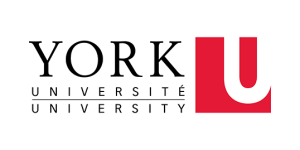34 A Foundation of Support for Neurodiversity
Building a Foundation of Support for Neurodiversity
Neurodiversity reflects the idea that people experience and interact with the world in different ways, including ways of thinking, learning, and experiencing their environment.
We work with our students to ensure key support is in place.
Below is an example of how common academic accommodations can translate to the workplace.
Academic Accommodation |
Workplace Accommodation #1 |
Workplace Accommodation #2 |
Workplace Accommodation #3 |
Time Management (e.g. extra time on test, flexibility with assignments) |
Advance notice of deadlines when possible | Plan and structure times of transition and shifts in business activities | Provide a colour-coded wall calendar or online calendar to emphasize deadlines |
Assistance with Prioritization/Breaking Up Tasks |
Clearly identify tasks that must be performed simultaneously and tasks that can be performed individually |
Provide specific feedback to help the employee target areas of improvement | Remove or reduce distractions from work area |
Accessible Room(s) |
Parking spots close to entrance and clearly marked accessible entrances and exits | Keeping pathways clear from obstructions | Placing equipment in areas at heights that can be reached by all; installing grab bars in washrooms etc. |
Resource from Hiring & Retaining Diverse Students: Employer Toolkit.
This work is licensed under a Creative Commons Attribution-NonCommercial-ShareAlike4.0 International License
Below is an example of tips for workplace support.
Key Supports You Can Request:
- Clear Communication: Using clear, direct language and providing detailed accommodations can help reduce misunderstandings.
- Individualized Approach: Every neurodiverse student is unique; your Professional Skills Coach will work with you and your supervisor to develop a work place accommodation based on your specific needs and strengths.
- Accommodations: Understanding and providing necessary accommodations, such as assistive technology, can enable you to perform at your best.
- Regular Check-ins: Frequent and structured check-ins with your Professional Skills Coach and workplace supervisor can help you stay on track, provide an opportunity to discuss challenges, and ensure you feel supported.
- Feedback: Offering constructive feedback in a supportive manner can help the student improve and grow. Positive reinforcement can also boost the student’s confidence.
- Collaboration with Support Services: Collaborating with York support services can provide additional resources and expertise.
- Advocacy: Advocating for yourself is a key component of a successful academic and work-integrated learning journey and can make a significant difference in your success.
- Peer Support Networks: Connecting with peers who share similar experiences can provide additional support and a sense of community.
Suggested workplace accommodations and self-accommodations for employees on the Autism Spectrum
The following is only a sample of the possibilities available. Work directly with your Professional Skills Coach and workplace supervisor to discuss which accommodations may be helpful.
The following arrangements are self-accommodations that you might find helpful:
Sensory stimulation
To reduce auditory distractions:
- Wear a noise-cancelling headset
- Hang sound absorption panels
- Use a white noise machine
- Office space that minimizes or eliminates audible distractions
To reduce visual distractions:
- Use space enclosures (cubicle walls)
- Reduce clutter in the employee’s work environment
To reduce tactile distractions:
- Ask co-workers to approach you in a way that is not startling, such as by approaching from behind.
Atypical Body Movements
- Use hand-held squeeze balls and similar objects to provide sensory input or calming effect
- Work from home if appropriate
- Private workspace allows individuals to move about and also not disturb others by movements such as fidgeting
Additional Research
Navigating Higher Education: A Neurodivergent Student Guide
Research: Exploring the experience of neurodivergent engineers in the workplace: Re-crafting engineering? looks at neurodiversity from both an academic/research and practitioner perspective, offering some practical future directions for employers.

